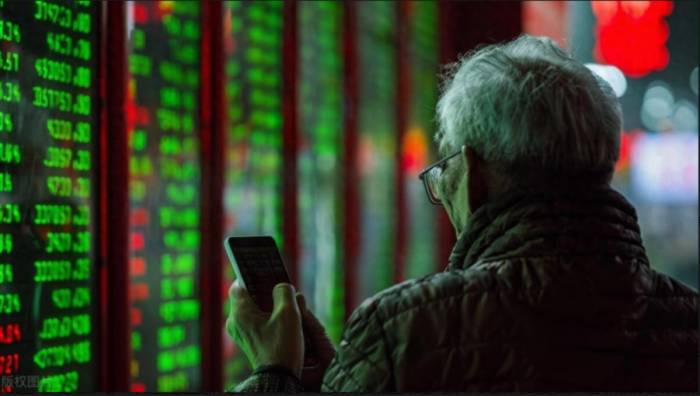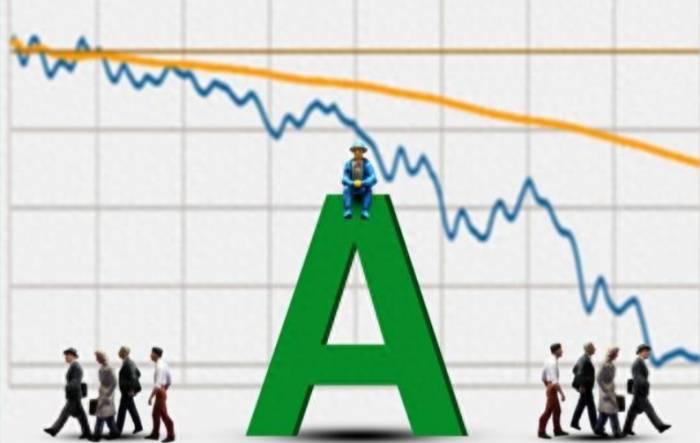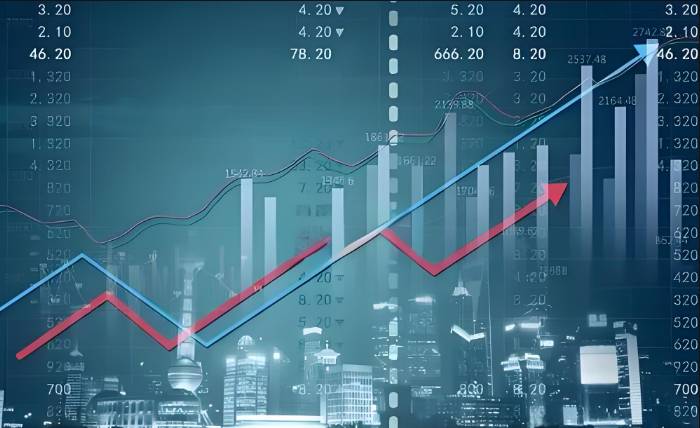Collaborating with Jack Ma, the Tai Shan Club tycoon "gives money," takes 60% of
To gain the trust of investors in the international market, the best way is to obtain the endorsement of the "Oracle of Omaha," Warren Buffett. It seems that once a stock is associated with Buffett's name, its price can soar. For instance, after Buffett acquired a 10% stake in BYD in 2008, it has since at least multiplied by 50 times.
In China, Jack Ma also possesses such "golden touch" magic. Since his first external investment in 2010, he has accumulated investments in leading companies in their respective industries, such as Momo, AutoNavi, Ele.me, and XPeng Motors. Moreover, in many of the companies he has invested in, Alibaba holds a veto power, or even controlling stakes.
There is one individual who, after partnering with Jack Ma to establish a company, not only holds the controlling rights but also takes 60% of the profits, while Ma takes only 40%. Who is this person that can make Jack Ma take a backseat?
I. Establishment of Yunfeng Fund
Yu Feng, born in 1963 in Shanghai, obtained both his undergraduate and master's degrees from Fudan University in Shanghai. He is now worth 22.5 billion yuan and ranks 296th on the Hurun China Rich List. Yu Feng was once the founder of one of China's leading elevator advertising giants, Focus Media. After the merger with Focus Media and Vision China, he became the co-chairman of the new company. However, Yu Feng is most renowned as the co-founder of the Yunfeng Fund.
Right after the 2008 financial crisis, Jack Ma, Yu Feng, and a veteran of a foreign fund had a hearty discussion on a small boat in West Lake. As they chatted again about the familiar capital market, the veteran of the foreign fund said, "Instead of making piecemeal personal investments, it's better to establish a formalized fund."
The speaker was casual, but the listeners were attentive. After returning from the boat trip on West Lake, Jack Ma and Yu Feng met several more times, and finally, in 2009, the fund company was officially established, named "Yunfeng." Jack Ma's "Yun," Yu Feng's "Feng." Early on, Jack Ma and Yu Feng set the tone for Yunfeng Fund to invest in technology innovation companies. Moreover, whether to invest in a company or not, Jack Ma could only make suggestions, and only Yu Feng could make decisions.
Yunfeng Fund has been committed to becoming China's "Carlyle Group" or "Quantum Fund." Thus, in terms of its structure, it is one of the earliest in China's private equity industry to align with the Western PE model. Its GP, or general partner, who is also the fund manager, is composed of Jack Ma and Yu Feng, with Jack Ma holding 40% and Yu Feng holding 60%. The LP, or limited partners, the main contributors to the private equity fund, are mostly well-known domestic entrepreneurs at the time, such as Liu Yonghao, Shi Yuzhu, Xu Hang, Wang Zhongjun, and other business magnates.
By looking at the investors, many are members of the Taishan Society or classmates from the Cheung Kong Graduate School of Business, so Wang Liqun, the founder of Panshi Capital, once jokingly referred to this financing model as "inbreeding." However, it is precisely because of the solid relationships based on mutual understanding that Yunfeng Fund's first round of financing exceeded 200 million US dollars.
Many magnates engage in capital investment not because they are not focused on their main business but because they are concerned that policy changes may plunge their companies into a cold winter. For example, the internet finance industry in 2017 and the after-school education industry in 2021. Yunfeng Fund indeed chose a good destination for the magnates' wealth, as it can invest in technology companies with potential for future development and hedge their wealth risks.Private Equity (PE) has always been a game for the wealthy. It is difficult for private capital in China to pool together, mainly due to the strong traditional family concepts that make people reluctant to trust outsiders. In Western PE funding practices, the Limited Partners (LPs) contribute 99% of the capital, while the General Partners (GPs), the managers, only need to invest 1%. However, in China, many GPs have to contribute the lion's share of the fund, and even guarantee a minimum return, in order to gain the trust of the capital. This is why, domestically, PE is considered a game for the rich; without money, there is no persuasive power.
So why are business magnates willing to invest in Yunfeng Fund?
II. The "Magic" of Yu Feng's Deal-making
As everyone knows, there are numerous experts around Jack Ma. What charm does Yu Feng possess to become a guest on Jack Ma's West Lake boat tour and to receive 60% of the dividends from Yunfeng Fund, when in fact he only relies on two things: focus and a macro perspective.
1. Focus
In 2007, Yu Feng resigned from his position as co-chairman of Focus Media and cashed out 1.6 billion yuan. Coincidentally, at the end of 2007, Huayi Brothers was undergoing restructuring, so Yu Feng invested 5 million yuan with the funds he had on hand. In February 2009, when Huayi Brothers went public on the Growth Enterprise Market (GEM), Yu Feng and his mother, Wang Yulian, held 9.5% of the shares, which were worth 272 million yuan. Did Yu Feng sell these shares? He did not.
Instead, Yu Feng skillfully introduced celebrity shareholders such as Feng Xiaogang, Li Bingbing, and Huang Xiaoming, which further increased the stock price. From 2009 to 2016, over a period of seven years, Huayi Brothers' stock was in a bull market. Yu Feng chose to sell off his shares in batches during this time. How much did Yu Feng actually earn? According to estimates by relevant individuals, it was at least 1 billion yuan. The initial 5 million yuan in Yu Feng's hands increased by 200 times.
To the untrained eye, it may seem like a spectacle, but to those in the know, it's all about the strategy. Many people believe that Yu Feng's investment in Huayi Brothers was a matter of luck, and if he held onto the shares until now, he might even be at a loss. However, as an investor, Yu Feng was even more attentive to the company's management than Huayi's own Wang Zhongjun and Wang Zhonglei. He not only gradually brought in celebrity shareholders but also advised Huayi to focus on film production and artist management.
Wang Zhongjun once joked, "Jack Ma and Yu Feng are more active in board meetings than I am."
2. Macro Perspective
Lu Weiguang, chairman of Ansell Flooring, once said, "In terms of investment, I trust Yu Feng."Although Yu Feng did not come from a formal investment background, the Ju Zhong Media he founded once "shared the world" with Focus Media, and he has also accepted investments from major funds, being familiar with the complete processes of listing, mergers and acquisitions, and restructuring. This kind of experience and overall perspective is something that many "youngsters" from formal training do not possess.
In 2018, when discussing future market development with a reporter, Yu Feng was asked, "How do you plan for the future? Is your goal just to make money?"
Yu Feng replied that the essence of business is to make money, but making money once is called trading, and being able to make money continuously is called a business model. The most important factor for a company to make money continuously is pricing. If your pricing is lower than others, you have more competitiveness. If your costs are lower than others, you have more endurance. The part between competitiveness and endurance is the source of a company's sustainable profits. When investing in a company, one should first look at whether the industry can still make money 30 or 50 years later, then judge how the strategy for 5 or 10 years should be set, and finally think about the current work arrangements.
Nowadays, Yunfeng Fund mainly focuses on investing in areas such as chip semiconductors, intelligent automation, and autonomous driving, which fully aligns with Yu Feng's overall perspective on investment.
III. Conclusion
Yu Feng once lamented, "We are really fortunate, everyone has funds and resources. What we need to do is to have a larger pattern and make a larger strategic layout."
At present, Yu Feng, a super-rich man with a net worth of 22.5 billion, managing a fund scale of over 10 billion, and an average annual IRR of over 30% for five years, still has unfulfilled ambitions. Some time ago, Yu Feng publicly stated that "in the next 10 years, China will see a batch of medical companies with a market value of hundreds of billions." Currently, Yunfeng Fund has started to build a platform for entrepreneurs and the medical industry to communicate. In September 2021, it invested $120 million in the cell therapy company Cytimmune.
It has to be said that from an entrepreneur to an investor, Yu Feng has changed his identity and his way of playing the game, but he remains a winner.




